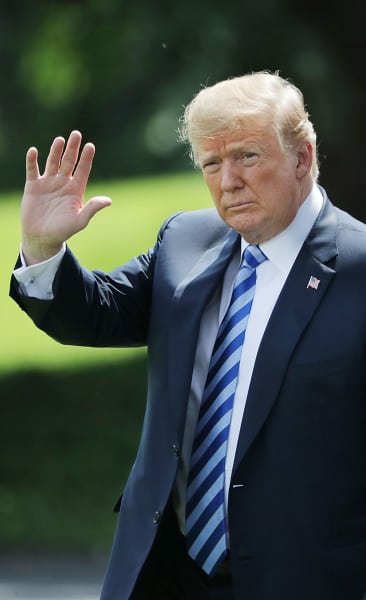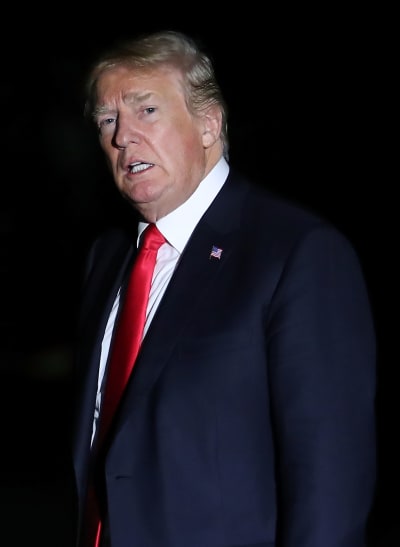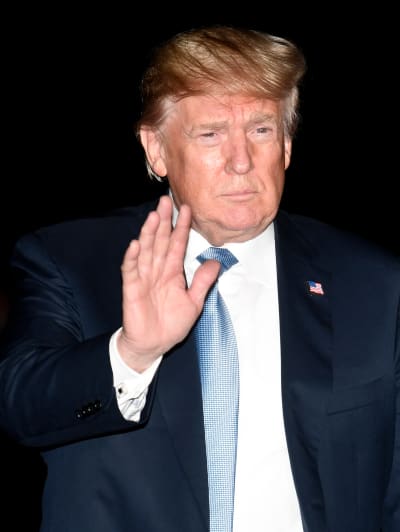Presidential pardons are powerful things.
Like executive orders, they enable a sitting president to take swift and decisive action without congressional approval -- and there have been times when those actions altered the course of history.
In 1974, for example, Gerald Ford granted a full and unconditional pardon to Richard Nixon, the predecessor who had stepped down and made Ford president amid the Watergate scandal.
Ford's decision elicited outrage from critics, but there was little that could be done to reverse it.
The president, after all, is granted powers unlike those of any elected official, and one of those powers enables him to protect his allies from prosecution.
But now -- as he's done so many times throughout his four years in office -- President Donald Trump is raising a new question, one that constitutional scholars probably thought they would never have to answer:
Does the president have the authority to insulate himself against legal consequences?
Trump has been hounded by legal issues throughout his presidency, and he recently stated that he has the “absolute right” to issue a pardon to himself.
In would be an unprecedented move, but Trump is certainly no stranger to those.
No president has ever attempted to pardon himself while in office, and if Trump attempted to do so during his remaining six weeks in office, he would be venturing out onto a precarious limb -- and he'd likely find that very few of his allies would be willing to follow.
But if he possessed the boldness to go before the American people and declare himself above the law, could Trump feasibly get away with it?
In a word, no -- but at the same time, it's not a complete impossibility
Such a move would likely lead to a court case that would drag Trump's unscrupulous business practices into the light, a fate that he seems to fear almost as much as prison.
That said, there's a non-zero chance that such a court case could work out in Trump's favor.
“It’s impossible to anticipate every factual scenario that could come up under a legal provision. This is why we have the courts," University of Baltimore law professor Kimberly Wehle recently told the Associated Press.
Such a bold risk might seem inadvisable, but insiders say Trump's fear of prosecution is the motivation for many of his actions these days.
From his desperate attempts to steal the election and secure a second term in office to his unabashed exploration of options such as self-pardoning, Trump is a man on the run, and increasingly, it seems he doesn't care who knows it.
It's worth noting, of course, that Trump's fears of being sent to prison are probably unfounded.
In all likelihood, Joe Biden will not try to prosecute Trump once he takes office.
Such an action wouldn't be in keeping with the sort of politician that Biden has shown himself to be during his 47 years of public service, and it certainly wouldn't help bring about the climate of unity and healing that the president-elect is hoping to foster.
Of course, that doesn't mean that our current president is in the clear once he leaves office.
Insiders say Trump is facing $400 million in debt, and the only thing that's protected him from creditors over the past four years is the fact that it's quite difficult to collect from a sitting president.
And unfortunately for the Donald, former presidents are not so well-protected.






